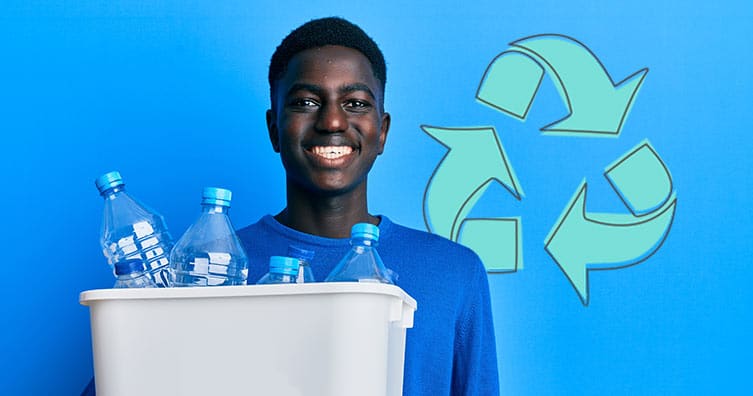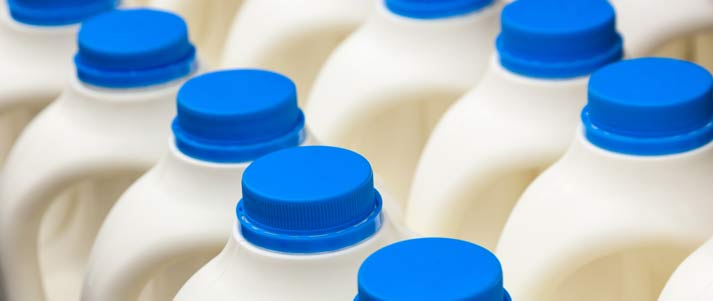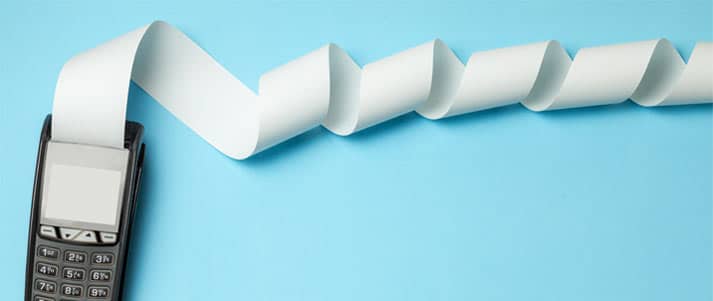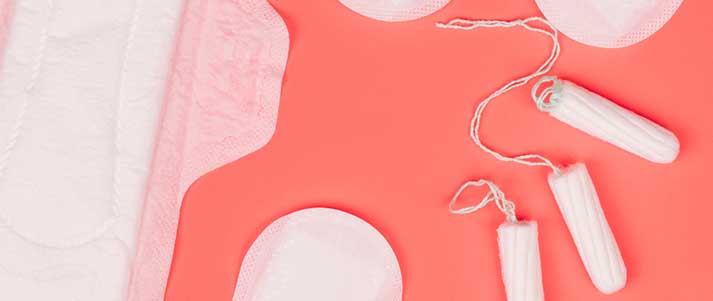What you can and can’t recycle
Recycling is so important. But it's not always easy to get right. Here are the key things to know about recycling – starting with what you can (and can't) recycle.

Credit: Krakenimages.com, Juliann – Shutterstock
Reduce. Reuse. Recycle. We all know these are the key ways to cut down on waste. Sometimes, though, it feels easier said than done – especially when it's unclear what actually can be recycled.
You might be familiar with some schemes that accept items for recycling that can't go in your home recycling bin. There are even initiatives that pay you for your recycling. You'll find a few examples below. Plus, we'll go through some extra info on why it's important to recycle, and where your recycling goes.
First, though, we'll focus on the items you should put in your recycling bin at home, and what you'll need to throw away as general waste.
What's in this recycling guide?
What CAN you recycle?
You can usually recycle these things:
-
Paper

Credit: Marie Maerz – Shutterstock
You can recycle most paper, as long as it's clean. This includes magazines, newspapers and shredded paper.
You can recycle envelopes, even if they have a clear window on the front. You shouldn't need to separate the window from the envelope before putting it in your recycling bin.
Brown paper is also recyclable. This is why it's a good eco-friendly alternative to wrapping paper, which isn't always recyclable.
But if you need to separate your recycling, brown paper should go with card instead of paper. This is because it can lead to brown flakes in new paper.
It's worth noting that some paper items aren't recyclable, like shiny receipts and tissues. We explain more about this below.
It's essential to clean things before putting them in the recycling – even if it's just a quick rinse under the tap. If anything is dirty, it could lead to the whole batch getting sent to a landfill! -
Card and cardboard
Clean cardboard is usually recyclable. So delivery boxes, or the cardboard packaging for items like eggs, should be fine to go in your recycling bin.
However, boxes that are stained by food or grease (like pizza boxes) can't be recycled.
It's best to remove any tape from cardboard before recycling it. Some paper tape is recyclable, but sellotape or anything similar will need to go in the bin.
Greetings cards can usually be recycled. But this isn't always the case – particularly if there's glitter on them. As a general rule, glitter isn't recyclable, so you'd need to remove this from cards before recycling them.
And when you finish a roll of toilet paper, the cardboard tube can be recycled. But, it's actually possible to sell these online instead (yes, really!). We explain this in more detail in our guide to making money from old loo roll.
-
Plastic packaging
A lot of plastic packaging can be recycled.
If the packaging is black, this can be difficult to recycle from home. You'll need to check whether your local authority accepts black plastic packaging before including it in your recycling.
Here are some examples of packaging that is recyclable:
- Clear plastic packaging
- Food pots and tubs, such as for yoghurt, soup, ice cream or margarine
- Tubs for things like laundry capsules and dishwasher tablets
- Plant pots (although not black ones, unfortunately).
-
Plastic bottles

Credit: Humannet – Shutterstock
On the whole, plastic bottles can be recycled.
Most bottles, such as drink bottles, milk bottles, toiletries bottles and similar, can be recycled. Generally, you'll need to empty the bottles, rinse them, crush them, screw the lid closed and leave the label on.
For soap bottles, remove the pump and throw this in the general waste bin.
You can usually recycle bottles for cleaning products such as bleach. Again, remember to empty and rinse them, close the lid and leave the label on.
Trigger sprays (the ones you usually find on cleaning spray bottles) are recyclable, so they can be left on the bottle.
If a bottle contains chemicals like anti-freeze, it can't be recycled.
Check with your local council if you're unsure whether you can recycle a particular plastic bottle.
Check your local council's website to see if they'll collect your food waste. -
Glass jars and bottles
Some glass items can be included in your home recycling bin.
Usually, you can recycle glass jars and bottles. Make sure they're empty and clean, with their lids on. For things like wine bottles, take out the cork before putting them in the recycling. The corks can then be composted or sold online.
Please note that your home recycling bin generally can't include drinking glasses, light bulbs, vases or cookware such as Pyrex.
-
Metal
Often, you can include metal items in your home recycling like drink cans, jar lids, tins from food products and aerosols.
With aerosols, make sure they're completely empty and undamaged before putting them in the recycling. It's important not to crush or pierce them.
If there are any parts that are easy to remove, take these off and place them in the recycling bin separately.
-
Foil
As long as foil is clean, it can usually be included in your home recycling bin. Some councils don't accept foil though, so check if you can recycle it in your local area.
If you've used any kitchen foil or have a foil lid from a takeaway food container, give these a quick wash. Then, scrunch them into a ball. Try to make the ball as big as possible as this will make it easier to recycle.
For foil items that can't easily be scrunched up, like foil trays, it's still important to wash off any remnants of food before putting them in the recycling bin.
What CAN'T you recycle?
Here are some examples of things you can't recycle:
-
Paper receipts

Credit: ADragan – Shutterstock
Although most paper can be recycled, sadly, receipts that are printed on shiny paper can't.
For day-to-day purchases like groceries, paper receipts aren't really needed. So, to save paper, it's worth choosing not to get a receipt or opting for an e-receipt if you're given the option.
Plus, if you don't get a receipt, this saves the energy that would have been required to print one. So, it's a small but very easy way to reduce your carbon footprint.
-
Sticky tape
As we mentioned earlier, most types of tape aren't recyclable. So, if you're recycling something like cardboard, it's best to remove any sellotape first.
You can buy recyclable paper tape on sites like Etsy. Just be aware recyclable tape tends to be more expensive so won't always be easy to get on a budget.
-
Tissues
You might assume that, as tissues are made of paper, they'd be recyclable. But, alas, they're not.
They're made of really short fibres that lack the quality required to be recycled.
To avoid waste, you could get a reusable handkerchief. At the time of writing, you can buy 10 for £14.00 from M&S. There are also some very sweet ones on Etsy, but they tend to be a bit more pricey.
-
Disposable sanitary products

Credit: ADfoto – Shutterstock
Disposable sanitary products like tampons and pads need to be thrown away in the general waste bin.
A good way to cut down on waste while saving money is using reusable sanitary products instead. For example, menstrual cups can be bought for around £20 and should last years.
-
Some wrapping paper
This isn't always the case, but some wrapping paper can't be recycled. It's usually when it's decorated with glitter or foil designs that it's difficult to recycle it.
Before throwing wrapping paper away, check the inverse side of it as sometimes it will say there that it's recyclable.
If not, try this: scrunch the paper up, and if it stays scrunched up this is a good indicator that you can recycle it. If it immediately unravels, it's probably not recyclable.
Looking for an eco-friendly alternative to wrapping paper? Brown paper (as we mentioned earlier) can be recycled and is a lovely way to wrap gifts.
We go through some more sustainable ways to wrap presents in our eco-friendly gift guide.
-
Mirrors
Mirrors can't be included in your home recycling bin. However, you might be able to dispose of them at your local recycling centre.
Check with your local authority to find out more.
If a mirror's in good condition, you also have the option to sell it. For tips on how to sell things online, see our guides to making money on Amazon and maximising profits on eBay. Or, if you'd prefer to sell it via social media, find out how to use Facebook Marketplace.
-
Cling film
You can't include cling film in your recycling bin at home. It's also unlikely that your local authority will accept it at a recycling centre.
With this in mind, you could consider using foil instead of cling film.
Or, another option is using wax food wraps. These are reusable and tend to come in a range of pretty designs. They can be expensive, but if you look after them, they should last a while. We explain a bit more about them in our guide to eco-friendly alternatives to home products.
Recycling schemes
Credit: S.Zykov – Shutterstock
There are loads of recycling schemes across the UK that take items you can't usually recycle from home. Some will even give you money in return for the items.
Here are some examples:
- Mobile phone recycling companies will pay you for your old device.
- schuh will give you £5 off new shoes in return for your old ones.
- You can get 10p for each Ocado bag you return to them.
- Supermarkets often have bins for items that are difficult to recycle at home. Look out for recycling bins for old batteries, plastic bags, crisp packets, clothes and more.
- Things like Pringle tubes, Babybel wrappers and makeup containers from selected brands can be recycled via TerraCycle for free. See their website to find drop-off locations near you.
- Some opticians let you take in your old contact lenses for recycling. Contact your local store to see if they have any similar recycling schemes in place.
- Look for the icon of a crossed-out wheelie bin on your electricals. This is the Waste Electrical and Electronic Equipment (WEEE) symbol. It indicates you should recycle an electrical item via your local authority rather than throwing it in a general waste bin. Contact the council to find out whether they'll pick the item up or if you need to drop it off at a recycling centre.
Looking for more ideas? Check out these great ways to make money from recycling.
Why should we recycle?
When faced with the climate crisis, recycling might seem like a tiny action in the grand scheme of things. But it is so important.
To slow down and reverse climate change, governments and big corporations need to make real efforts to address environmental issues. That's not to say, though, that we as individuals should sit back and do nothing.
We can each make a difference, no matter how small.
Recycling helps to prevent plastic from ending up in oceans and reduces the amount of rubbish that is sent to landfills. Landfills are major contributors to greenhouse gas emissions. So, any time there's an opportunity to recycle something, it's worth doing.
Essentially, recycling is an easy way to live more sustainably. With this in mind, we really would urge you to recycle and avoid waste as much as possible.
However, we do know the current system is far from perfect, as we'll explain in more detail in the next point.
Where does our recycling go?
A major issue with the UK's approach to recycling is that a lot of it is sent abroad to other countries. In fact, Greenpeace claimed in 2021 that "less than 10% of everyday plastic – the plastic packaging that the things we buy is wrapped in – actually gets recycled in the UK".
A huge amount of recyclable waste is exported from the UK to countries such as Turkey, Malaysia and Poland. There are concerns that too much of what we throw away as recycling is getting burned or dumped in other countries.
That's not to say you should stop making an effort to clean and sort items for recycling. But, clearly, putting things like plastic in a recycling bin isn't enough.
Ultimately, we need to be trying to use less plastic. The main responsibility here lies with governments and major corporations like manufacturers and supermarkets to ensure less single-use plastic is produced.
However, there are plastic-free alternatives to a lot of everyday essentials. We know it's not always easy on a budget, but if you can find cheap eco-friendly versions of your usual products, these are worth getting.
Hoping to live more sustainably? Try these easy ways to reduce your carbon footprint.








